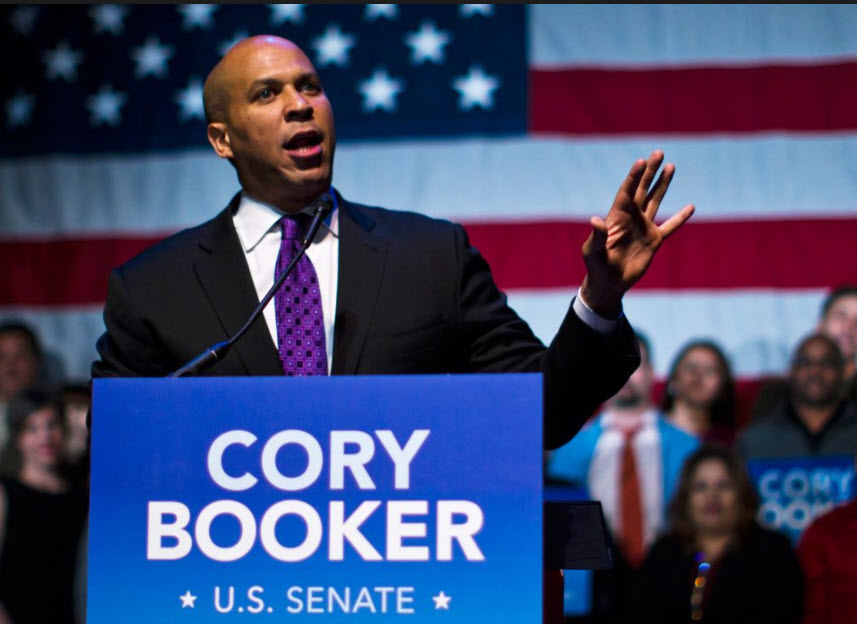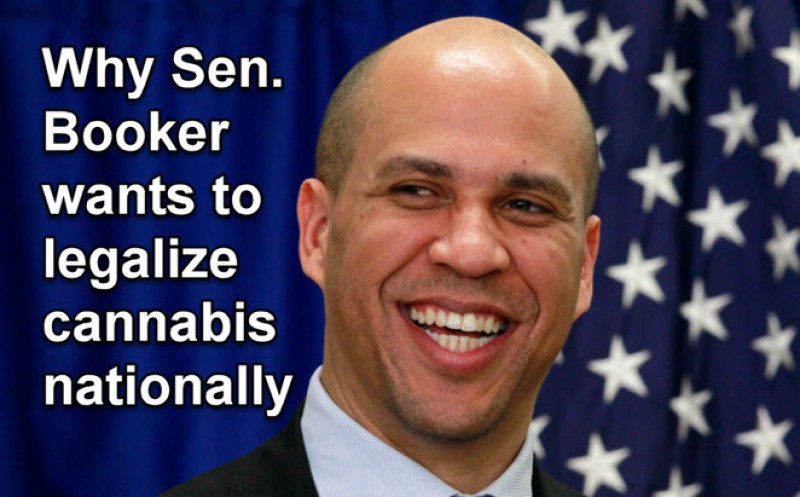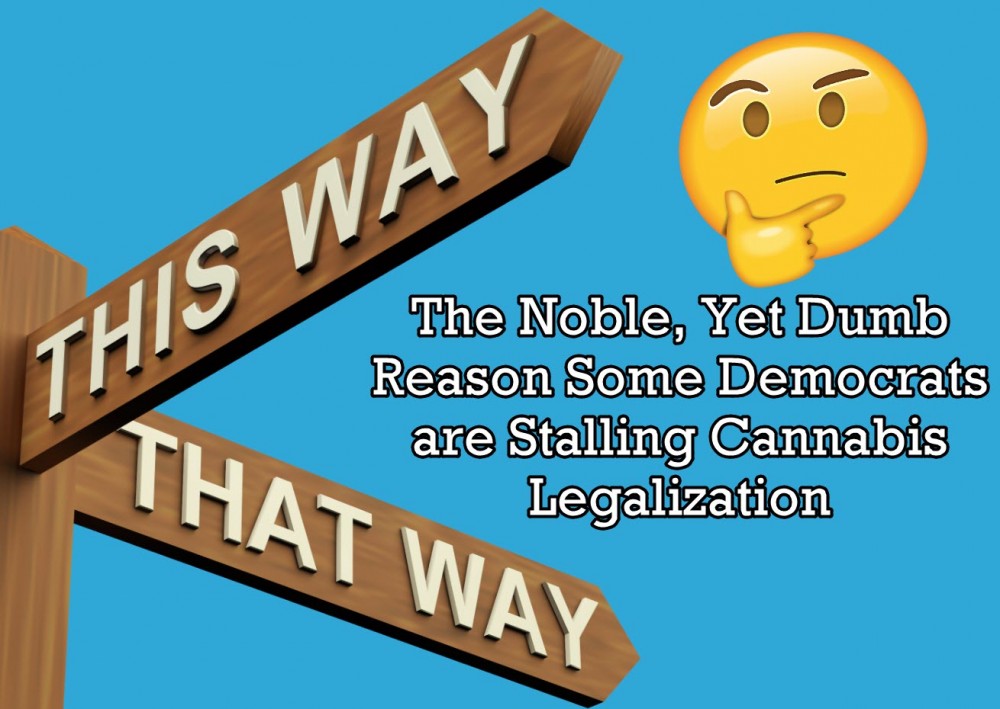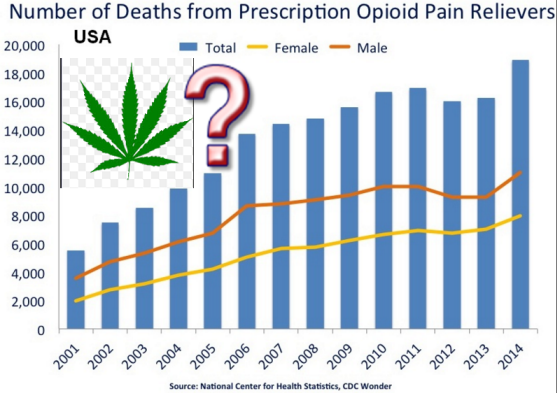Justice for Cannabis
No one can deny that the cannabis industry has grown to epic proportions. With eight states and the District of Columbia having legal recreational cannabis on the books, and 29 States with a medical cannabis program, the issue of legalization is no longer a matter of “if” but a matter of “when”.
A New Jersey Senator, Cory Booker introduced a new congressional bill that aims to completely legalize cannabis on a national level. Appropriately known as the “Marijuana Justice Act of 2017” aims to not only end the federal prohibition of cannabis, but also seeks to address the negative impacts of prohibition.
This is great news for the cannabis movement. While currently I’m not sure if this will pass or not (in all likeliness not yet anyway), it does set a precedent for the most aggressive legalization bill on the books up to date. In fact, right after Sen. Booker released the news of the bill, it was picked up by media outlets nationwide. It’s sparking a conversation and even if it only does that, it is already doing its job.
Why Sen. Booker wants to legalize cannabis nationally

Sen. Booker has noticed the ill effects of cannabis prohibition which targets minorities at a higher rates than non-minorities, costs a buck load of money to sustain and does absolutely nothing to curb the prevalence of drug use across the nation. Of course, this isn’t a bill to legalize all drugs but only the most popular illegal substance in the world – Cannabis!
Here’s a snippet of what the Bill aims to do…
- Cut federal funding for state law enforcement and prison construction if a state disproportionately arrests and/or incarcerates low-income individuals and/or people of color for marijuana offenses
- Allow entities to sue states that disproportionately arrest and/or incarcerate low-income individuals and/or people of color for marijuana offenses
- Prevent deportations of individuals for marijuana offenses
- Provide for a process of expungement for marijuana offenses at the federal level
- Provide for a process of resentencing for marijuana offenses at the federal level
- Create a “Community Reinvestment Fund” of $500 million to invest in communities most impacted by the war on drugs, for programs such as job training, reentry, community centers, and more. Part of the funding will come from the aforementioned cuts to state law enforcement and prison construction.
As you can see, this is a very promising looking bill and could end the war on cannabis completely. It sets the framework for a national cannabis industry that would in all likeliness create millions of new jobs, expunge the records of victims of the drug war and one of my favorite points…invest into communities that have been plagued by the drug war.
You see, we’re beginning to understand how ‘addiction works’. It’s not a disease. Now of course I’m not saying “cannabis addiction” but rather all drug addiction including heroin, crack and all that jazz.
They recently did an experiment with rats where they tested the hypothesis that drug abuse relates mostly to “environmental elements” as opposed to a genetic pre-disposition to drug abuse. The experiment essentially worked as follows;
The first group of rats were placed in a cage with heroin-laced water. The cage was dismal and represented a prison of sorts. In this group, a whole bunch of rats opted in to get high on the drug water and some of them overdosed on it.
The second group of rats had the same heroin-water to drink, except the difference is that they didn’t live in a dismal cage. What was dubbed “rat park” allowed the rats to run around, interact with other rats, and simply be “ratty” as their nature suggests. In this group, some rats tried it, but hardly any became addicted and most avoided the heroin-water.
What can we learn from this? Oppression seeks escape and drugs become a handy escape when one is being oppressed. Sen. Booker’s bill utilizes this principle by investing into communities that have suffered from the war on drugs by creating new opportunities, further education and much more. Think of it as “rat park for humans”.
In fact, we should be doing this all over the place.
Additionally, (this is a side note) Oakland CA also took a big step towards cannabis justice by allowing 50% of their cannabis license application to go to people who have records for marijuana possession and consumption in a way to pay “restitution” to convicted felons.
It seems to me that the United States is reaching the point of maturity where cannabis could finally become a staple within American society. The next few years will be interesting as anti-cannabis groups will squirm to maintain the status quo, however seeing that 94% of the US population is in favor of medical cannabis being available to sick people, and 60% of the US population in favor of legalizing cannabis nationally….the prohibition side has lost.
OTHER STORIES YOU MAY ENJOY...
DEMOCRATS ARE STALLING WEED, CLICK HERE.
OR..
CANNABIS CUTS OPIOD RATES, PERIOD. CLICK HERE.
OR..
CAN CANNABIS PREVENT STROKES, CLICK HERE.









